If you’re a Vermont resident looking to open a bank account, you aren’t without options. With over 20 banks in the Green Mountain State, it may be hard to narrow down your choices to the one financial institution that would work best for you.
This comprehensive list of the best banks in Vermont includes both local, regional, and national options. I’ll highlight the pros and cons of each, including details about their services, fees, customer support, and special features.
11 Best Banks in Vermont
Here are the top banks and credit unions in Vermont for 2026:
- M&T Bank: Best for No Maintenance Fees
- TD Bank: Best for Late Banking Hours
- Northfield Savings Bank: Large ATM Network
- Community Bank: Best Budgeting Tools
- Citizens Bank: Best High-Interest Savings
- Bank of Bennington: Best for Avoiding Monthly Fees
- Ally Bank: Best Online Banking
- Community National Bank: Best Banking for Seniors
- Union Bank: Best for Checking Account Selection
- Bar Harbor Bank & Trust: Low Minimum Opening Deposit
- Vermont Federal Credit Union: Low Fees
See Vermont’s Best Bank Bonus Offers & Promotions
1. M&T Bank 
Best For: No maintenance fees
When it comes to the best banks in Vermont, M&T Bank tops the list. Founded in 1865 as Manufacturers and Traders Bank in Buffalo, M&T is a regional bank focusing on the needs of communities it serves along the East Coast. With 43 branch locations across Vermont, you can find an M&T Bank in Bennington, Burlington, Montpelier, Rutland, Williston, and more.
M&T Bank is FDIC-insured and offers many banking services, including business, commercial, and personal banking, loans, credit cards, insurance, investment, and retirement accounts. Customers can visit a local brick-and-mortar location or bank online via M&T’s website or mobile app.
Accounts
They offer four checking account options, with EZChoice Checking as one of the best options across all banks on this list. The EZChoice Checking account has no maintenance fees, a low opening balance of $25, mobile check deposits, digital wallet capabilities, a debit card, and Zelle transfers.
Savings options include a certificate of deposit (CD) account, youth savings, standard savings account, and premier savings account. You can link their Relationship Savings directly to your checking account as a source of overdraft protection.
Pros:
- A+ rating with the BBB
- No monthly maintenance fee with EZChoice Checking
- Competitive CD rates
Cons:
- Low APY for savings account
- A minimum of $1,000 is needed to open a CD
Learn More:
2. TD Bank 
Best For: Late banking hours
TD Bank, short for Toronto-Dominion Bank, is a Canadian multinational bank with over 1,100 locations throughout the U.S., including 39 in Vermont.
As one of America’s largest banks (primarily on the East Coast) and part of the “Big Five” financial institutions in Canada, TD Bank offers a variety of financial services, including checking and savings accounts, CDs, home lending, credit cards, personal loans, and IRAs.
Accounts
The bank offers four checking account options, the most popular being TD Complete Checking and TD Beyond Checking. The TD Beyond Checking account earns interest and has a waivable $25 monthly fee.
For savings accounts, TD Bank provides two options—TD Simple Savings and TD Signature Savings. The TD Simple Savings account has a monthly fee of $5, which can be waived in multiple ways (including maintaining a $300 daily balance). TD Signature Savings account has a monthly fee of $15, which is also waivable, with APY rates ranging between 0.01% and 0.05%, depending on your balance.
For new customers opening one of the accounts I’ve mentioned, TD offers a welcome bonus between $200 and $300 when you complete the qualifying criteria.
Pros:
- Generous cash welcome bonus
- Multiple account options
- Locations typically have weekend hours
Cons:
- APY rates for savings accounts could be higher
- ATM fees apply with certain accounts if you use an out-of-network ATM
Learn More:
3. Northfield Savings Bank 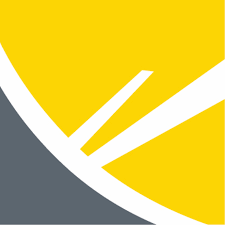
Best For: Large ATM network
Northfield Savings Bank (NSB), founded in 1867, is the largest bank in Vermont. Headquartered in Northfield, VT, it has 14 branches and access to over 55,000 ATMs nationwide through the Allpoint network. Like other banks on this list, NSB provides accounts for checking, savings, IRAs, CDs, and HSAs, as well as wire transfers, investing, mortgages, and personal loans.
Accounts
NSB offers five checking accounts, including a free e-checking account and a money market checking account (with APYs currently up to 1.98%). They also offer a money market savings account; however, interest rates are lower at 0.60% APY (but still higher than the national average rate for both savings and money market accounts).
Other banking products NSB offers include Health Savings Accounts, IRAs, CDs, loans, and business banking.
Pros:
- Offers a money market checking account
- “Bounce” overdraft protection (you must opt-in first)
- Community-focused
- A vast network of fee-free ATMs
Cons:
- Limited customer service hours
- Online account sign-up only works with certain browsers
Learn More:
4. Community Bank 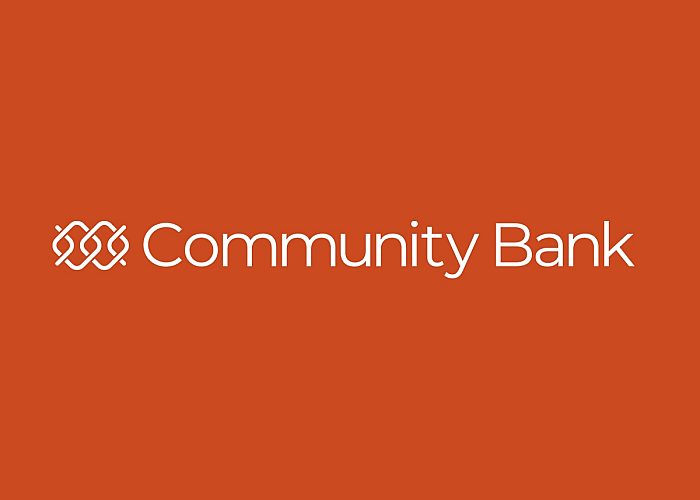
Best For: Budgeting tools
Founded in 1866 and headquartered in New York, Community Bank, N.A. is the second-largest bank in Vermont. It is a full-service financial institution offering banking products and services, including savings accounts, checking accounts, money market accounts, CDs, IRAs, mortgage loans, and credit cards.
Accounts
Community Bank has four checking accounts, each with a chipped debit card, spending perks, free bill pay, budgeting tools, free eStatements, and a free gift for opening your account. Three of the checking accounts are interest-earning with competitive rates. Its Premium Interest checking is the only account with a minimum balance ($1500) and an $8 fee if your account dips below that.
Community Bank also offers a Free Savings, Premium Savings, and a Christmas Club savings account. With Free Savings, there’s no fee to open the account (just a $50 minimum deposit), no minimum balance or low-balance fees, a competitive interest rate on balances over $1, and access to online and mobile banking.
Community Bank also offers various loans, such as auto or mortgage loans, auto and home insurance, credit cards, and plenty of business banking products.
Pros:
- Interest-earning checking accounts
- Highly rated mobile app
- Branches spread out across the entire state
Cons:
- Interest rate info is not available on their website
- Negative online reviews for their lending services
Learn More:
5. Citizens Bank 
Best For: High interest savings
Citizens Bank is a regional bank based in Providence, Rhode Island, having over 1,100 branches and 3,400 ATMs across 14 states. Currently, there are 11 Citizens Bank branches across Vermont in Bennington, Middlebury, Rutland, and Williston. Citizens Bank offers a wide range of personal banking products as one of the largest and oldest banks in the U.S.
Accounts
Citizens Bank offers five types of checking accounts (two that are interest-bearing) that either charge zero overdraft fees or come with Citizens Peace of Mind, which gives you extra time to cover your overdrafts. It also offers three options for savings, none of which require a minimum balance. If you want to grow your savings, the Citizens Quest Savings account earns higher interest rates as your account balance increases.
In addition to checking and savings, Citizens Bank offers credit cards, home loans, student loans, investing, and wealth management. They also have small business and corporate banking products.
Pros:
- Online-only account options with no fees
- Accounts with monthly fees are easy to have waived
- Has an extensive branch network
Cons:
- Low rates on CDs
- High overdraft charges ($35)
Learn More:
6. The Bank of Bennington 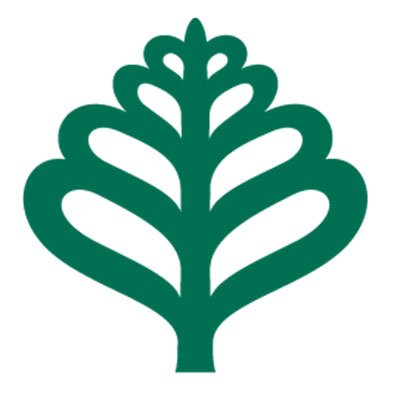
Best For: Avoiding monthly fees
Bank of Bennington is a community bank based in Bennington that has been serving customers since 1917. You can visit five locations in the southern half of the state, including Bennington, Manchester, and Arlington. You also have access to E-banking (their online banking platform), through which you can manage your accounts at any time.
Accounts:
The Bank of Bennington offers two checking accounts: NOW checking and Checking Plus. Both come with a free debit card, ATM card, online banking, bill pay, direct deposit, eStatements, and phone banking. While they both have monthly services, they are easily avoidable.
There are multiple savings account types for different financial needs and goals, including a statement savings, kids’ savings, savings clubs, CDs, IRAs, an HSA, and a money market.
In addition, The Bank of Bennington also offers business banking, financial planning services (including investing and life insurance), and lending services (for mortgages, home equity, and construction).
Pros:
- FDIC-insured
- Prioritizes local communities and individuals in need
- SecurLOCK Equip keeps your debit card safe
Cons:
- Limited locations
- Mobile app ratings could be better
Learn More:
7. Ally Bank 
Best For: Online banking
Ally Bank is a financial institution founded in 2009 that operates solely online. Ally’s services are ideal for customers who prefer to manage their accounts with a mobile device, tablet, or laptop. Despite having no physical branches, Ally offers its customers access to over 55,000 no-fee Allpoint ATMs nationwide.
Accounts
One of Ally’s primary offerings is its Spending account, which has no minimum deposit or minimum balance and various features, including mobile check deposits, a MasterCard debit card, and RoundUps credited to your savings account.
Ally Bank’s Online Savings Account is an attractive option for those looking to save money, with an Annual Percentage Yield (APY) much higher than the national average. There are no monthly maintenance fees, as well as a “savings bucket,” feature to which you can assign your savings for specific goals while still earning interest on your entire account balance.
Ally Bank provides various financial products and services to help you meet your financial goals. With Ally Bank, you can take advantage of a range of financial products, including money market accounts, CDs, mortgages, auto loans, personal loans, investing, and retirement services.
Pros:
- Offers a high-yield CD
- APYs are well above average
- Low fees
Cons:
- No physical branches
- Does not offer credit cards
Learn More:
8. Community National Bank 
Best For: Banking for seniors
For more than 165 years, Community National Bank (CNB) has provided financial services to northern Vermont communities, including Barre, Barton, Derby, and Montpelier. With 12 retail locations and two loan offices, CNB offers a range of personal and business banking products geared toward specific needs and ages.
Accounts
Community National Bank has three checking accounts, two of the checking accounts are geared toward seniors: Community Checking (for anyone), Community Circle Checking (for 55+), and Preferred Checking (for 62+). Each has a $1 minimum balance to open and a $0 monthly service charge. They also come with a debit card that you can link to any mobile wallet and also serves as an ATM card.
They also have a large number of savings accounts, including one for children ages 12 and under, one for teens, a community account for anyone, and a savings account for people ages 62 or older.
Customers can also open a Christmas Club account and health savings accounts (HSA). In addition to checking and savings, CNB offers credit and debit cards, loans, IRAs, CDs, money market accounts, and multiple types of loans. They also offer business banking.
Pros:
- No monthly maintenance fees for checking accounts
- Overdraft Privilege pays for items if your account is out of funds
- Community Circle Club social events for 55+ members of the community
Cons:
- Savings and CD rates could be higher
- Limited locations in Vermont
Learn More:
9. Union Bank 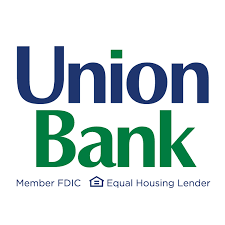
Best For: Large checking account selection
Union Bank (UB) is a community bank based in Morrisville, Vermont. Established in 1891, Union Bank has grown to become one of the largest banks headquartered here. Like Community National Bank, Union Bank’s 15 branch locations in Vermont are limited to the northern part of the state.
Accounts
Union Bank offers an impressive selection of services that can compete with any major bank. Union Bank has your financial needs covered with seven checking accounts, four savings accounts, five loan options, a credit card, wealth management, and secure online banking.
UB’s most popular account, UB Personal Checking, offers benefits such as online banking, telebanking, unlimited check writing, a UB Debit MasterCard, ScoreCard Rewards, and UB SmartSave. To help you save money, UB SmartSave allows you to schedule automatic transfers from your checking accounts to your other UB accounts.
Pros:
- Expansive banking services
- Access to 55,000 fee-free Allpoint ATMs
- ScoreCard Rewards program
Cons:
- Branches limited to northern Vermont
- The customer care team is only available on weekdays
Learn More:
10. Bar Harbor Bank & Trust 
Best For: Low minimum opening deposit
Headquartered in Bar Harbor, Maine, Bar Harbor Bank & Trust is a community bank serving Maine, New Hampshire, and Vermont since 1887. A member FDIC bank, your money is safe and easy to access at Bar Harbor, whether at one of Vermont’s 10 locations, online, or on the mobile app.
It offers standard banking products and services, including personal and business checking and savings accounts, loans, mortgages, and credit cards. Additionally, customers can access investment and wealth management services through its subsidiary, Bar Harbor Trust Services. They also offer small business and commercial banking.
Accounts
With Bar Harbor Bank & Trust, you can choose from three personal checking accounts. Each account has a $25 minimum deposit and features, including Zelle transfers, a debit card, and Bar Harbor card control (an app to monitor debit card use, lock your card, set custom alerts, etc.). Each time you make a purchase with your debit card, you earn CashBack rewards, which are credited back to your account each statement period.
The Statement Savings account offers tiered interest rates, free ATM cards, and free transfers. With a $3 monthly fee waived for balances over $100 or account holders under 22, the account requires just a $25 minimum deposit to open. You can also link your savings to your checking account for overdraft protection.
Bar Harbor Bank also offers home and personal lending, credit cards, and small business banking products.
Pros:
- Minimal fees
- Simple Checking account has no monthly maintenance fee
- Highly rated mobile app
Cons:
- Savings account rates are below the national average
- Locations only in central Vermont
Learn More:
11. Vermont Federal Credit Union 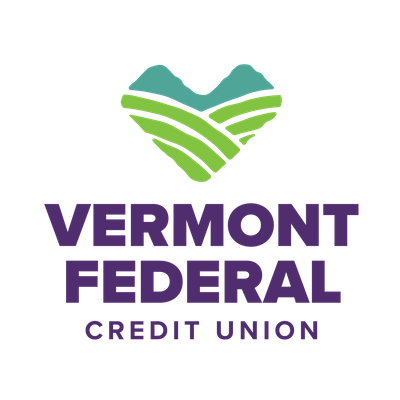
Best For: Low fees
Vermont Federal Credit Union is a non-profit financial cooperative with eight locations statewide.
Initially founded in 1953 as the Burlington Postal Employees Credit Union, it has undergone numerous changes over the years, transitioning from a federal to a community-chartered credit union in 2001. Today, the Vermont Federal Credit Union welcomes anyone from Vermont’s 14 counties to be a member.
Accounts
Vermont Federal Credit Union offers three checking accounts.Each account doesn’t have a minimum balance requirement and doesn’t charge monthly fees. They include overdraft protection a Visa debit card, and a large ATM network.
In terms of savings, if you want to become a Vermont Federal Credit Union member, you must open a Primary Share savings account with a minimum deposit of $5. Other savings options include a term share certificate account (or credit union’s version of a CD), IRA, money market account, HSA, or special savings account (which works like a savings club).
Vermont Federal Credit Union also offers home loans, credit cards, auto, student and personal loans.
Pros:
- Checking account option with ATM fee refunds
- Anyone can become a member with a $5 deposit in a savings account
- Many accounts don’t require a minimum balance
Cons:
- Savings accounts have tiered rates
- Limited checking account options
Learn More:
How To Choose The Best Bank In Vermont
At BankBonus.com, we’re committed to providing consumers with the resources they need to select a bank or credit union. Here’s an overview of the steps we recommend our readers take to choose a bank:
- Understand different types of banks: You have access to traditional banks, online banks, credit unions, and neobanks. It’s important to understand the differences between them and determine which type of institution aligns best with your preferences.
- Choose the right account: Checking, savings, money market, and certificate of deposit accounts are the most common types of bank accounts. Understand what each offers and choose a bank with the type of account(s) you need.
- Look for low-fee banks: Account fees can add up quickly. As you compare bank accounts, look for an account that doesn’t charge unavoidable monthly maintenance fees, overdraft fees, and ATM fees.
- Consider branch and ATM access: If having access to branches matters to you, choose a bank with physical locations. Regardless, you should prioritize banks that have a vast ATM network or reimburse ATM fees.
- Compare account features: Determine which features you’re looking for. A few common bank account features to consider are interest, cashback, mobile features, cash deposits, and minimum account balance requirements.
- Check out reviews and ratings: It’s crucial to pick a reputable bank. To get an idea of a bank’s customer experience, you can read expert reviews and look to sources like TrustPilot, the Better Business Bureau, and J.D. Power.
- Read the fine print: Don’t sign up for an account without understanding the terms and conditions. Make sure the account is FDIC or NCUA insured and get a sense of its requirements, fees, and expiration dates for bank bonuses.
- Look at the bank’s additional products: If you want to manage all of your finances under one roof, look into each bank’s additional products. A lot of banks also offer credit cards, wealth management, investment accounts, and loans.
Read our Full Guide to Choosing a Bank
Our Methodology
The BankBonus team has analyzed dozens of banks to provide our readers with thoroughly informed and accurate reviews. We evaluated digital financial platforms, online banks, regional banks, and national banks with a presence in Vermont.
Our assessment of each bank factors in these considerations:
- Product lineup: We review the types of accounts, loans, and services offered by each bank, as well as the number of accounts.
- Fees and pricing: We also consider each institution’s fees, including monthly maintenance fees and other service charges.
- Account features: To compare banks, we take a close look at the features, limits, and capabilities each one has to offer.
- Interest: Along with these features, we consider whether or not the bank offers interest-bearing accounts and compare their rates to industry averages.
- Brand reputation: The bank accounts we recommend have been carefully vetted to ensure they are legitimate, secure, and backed by FDIC insurance.
- User experience: Additionally, we consider the ease of use and availability of resources on each bank’s website and factor in reviews of the mobile app from the Apple App Store and Google Play Store.
- Branch and ATM access: To gauge convenience, we also look at each bank’s branch and ATM availability and consider their ATM reimbursement policies.
- Customer service: In our review process, we also explore their customer service channels, hours of availability, and third-party reviews.





Comments are closed.
Comments are closed here.